Whenever a journalist interviews me about financial independence and the FIRE movement, I explain that the first part of the journey takes about 6 months to 1 year.
The first part? The part where you have fun optimizing everything to become frugal, doing your budget calculations, and counting how much you can save each month to buy your freedom a few years down the road.
But very quickly, as I explain to them, you start thinking more deeply about your purpose.
This usually happens within a year at the latest once you’ve got everything in place, from your well-thought-out budget to automating your stock market investments.
You may have a dream of spending your time traveling, sipping cocktails in the Caribbean, but as all the studies prove over and over again, after a while (after 3 weeks, 6 months, or even 1-2 years), you get bored, because every human needs meaning in life.
And that’s when you start really wondering:
What are you going to do the day you don’t have to work to earn money?
That’s when a handy tool can help you figure out what will make you rich both externally and internally over the long term: finding your Ikigai.
What is an Ikigai (meaning)?
Ikigai is your reason for getting up in the morning: where what you love, what you’re good at, what the world needs, and what can make your money intersect. Basically, it’s about finding a balance between pleasure, utility, and meaning in your life.
The concept is rather simplistic, but it allows you to visualize in one place what your future could be.
Ikigai example of MP
If I were to fill in my Ikigai today, it would look like this:
PASSION / What I love
- Writing and sharing useful ideas (blog, book, newsletters)
- Testing tools and building efficient systems (FI Planner, programs)
- Optimization and efficiency (money, time, freedom)
- Helping people take back control of their financial lives
I love to see someone say “Oh yeah, I too can become financially independent!”
SKILLS / What I’m good at
- Simplifying complex subjects (Swiss taxation, investing in the stock market)
- Create clear comparisons (brokers, banks, vested benefits, etc.)
- Automate/structure processes
- Build an engaged community (readers, forum)
I like to simplify what’s scary by going through and clearing the brush first so that you’ll want to take action afterwards.
MISSION / What the world needs
- Clarity in the jungle of personal finance in Switzerland
- Realistic inspiration (no YouTube spiel about how to become a millionaire by the age of 20…)
- Simple tools for planning their independence
- Concrete alternatives to “subway-work-retirement at 65”
I provide my readers with the keys to independence, rooted in the real world of Switzerland.
PROFESSION / What I can get paid to do
- My book
- My programs
- My FI Planner tool
- My club deals in Swiss real estate
I can monetize what I create without losing my independence (i.e., having to work for a salary).
The Ikigai, a useful tool during AND after FIRE
When we aim for financial independence, we tend to see life in two phases: the first, where we work, save, and optimize everything to reach FIRE, and the second, where we’re finally free. But this binary division can quickly become a dead end if you don’t know what to do with your freedom once you’ve achieved it. That’s where the Ikigai comes in.
The Japanese concept of Ikigai is an invaluable tool, both for finding meaning during your FIRE construction phase and for giving your life a clear direction once you’re free.
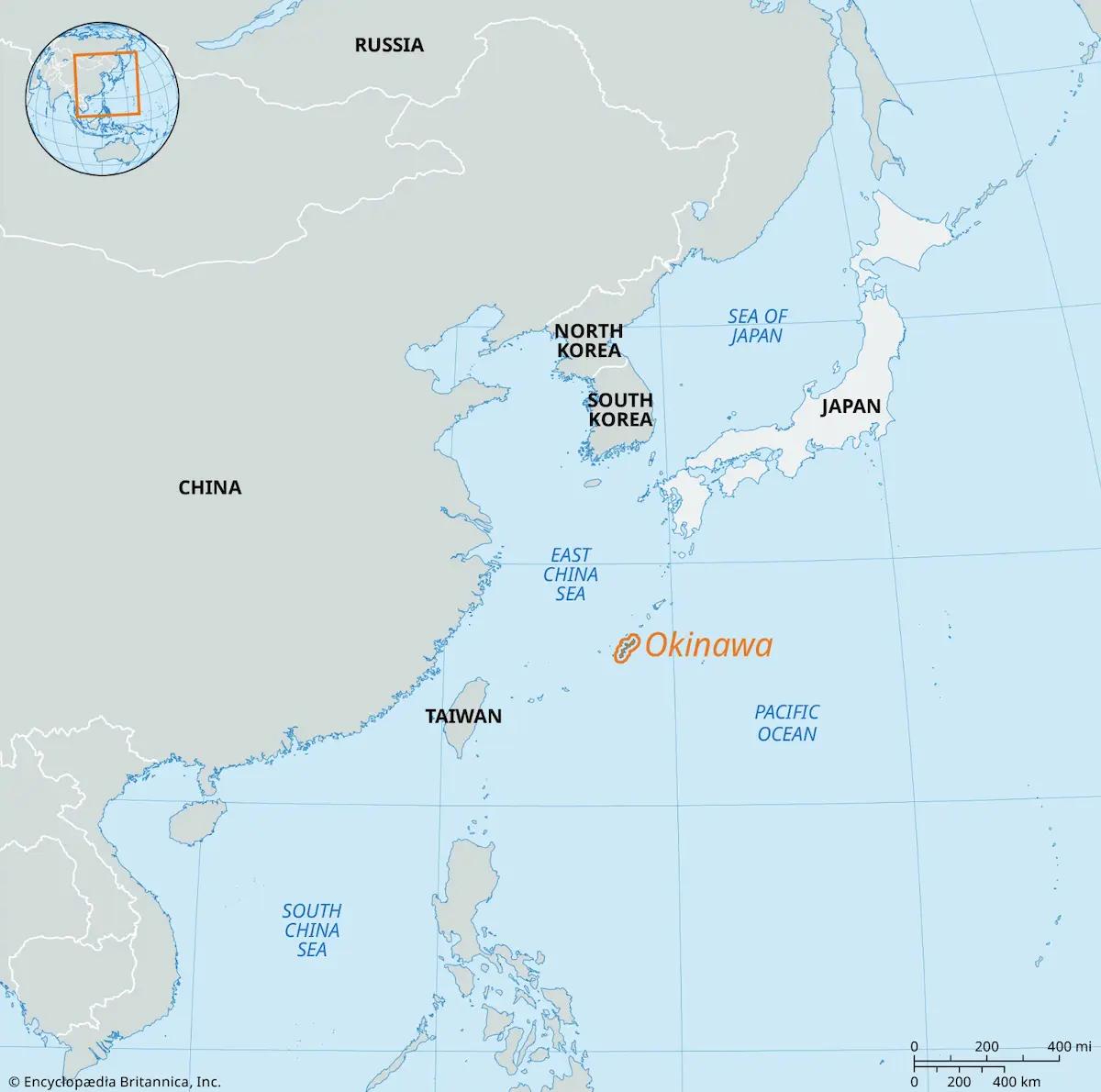
Ikigai's origins are said to be on the island of Okinawa in Japan (source: Encyclopædia Britannica, Inc.)
As you move towards financial independence, Ikigai can help you choose a career or projects that are in line with your values. You can then move towards your goal without burning yourself out in a meaningless job, and already enjoy a form of inner freedom along the way. You work to earn money, yes, but you find pleasure and impact in it, and that changes everything.
And once you’re FIRE? Ikigai saves you from the emptiness trap. Because once the constraints are lifted, you need a new compass. By reconnecting with what makes you tick, you can reinvent your free life with intention: whether you’re creating, transmitting, traveling, or committing yourself, you’re no longer doing “nothing” - you’re living life to the fullest.
How to find your Ikigai (concretely)
You don’t need to spend a month in Japan or isolate yourself in a Tibetan cave to find your Ikigai ;) In fact, you can start today, at home, with a notebook or on Notion.
I suggest a simple 4-column method in which you list:
What you like to do
→ What makes you lose track of time?
→ What excited you as a teenager?
→ If you had a week off, what would you do (excluding Netflix)?
What you’re good at
→ What do people come to you for help with?
→ Do you have any skills that you underestimate (but that others value)?
→ What do you do naturally well, without forcing yourself?
What the world needs
→ What problems around you (or in society) affect you?
→ Are there any causes you could get involved with?
→ What would you like to change if you had a magic wand?
What you could get paid for
→ Among all this, what do others value?
→ Are there things you already do for free that could be monetized (without selling your soul)?
→ Are there any role models or people who already make a living from something that speaks to you?
Once you’ve jotted down the answers, let the whole thing sit for exactly 7 days.
Then, once this week is over, reread your notes with a clear head. And observe: do one or two projects stand out? A recurring theme? A recurring desire?
That’s your starting point. You don’t need a perfect answer. Your Ikigai is a course, not a straight line.
And you, what’s your Ikigai?
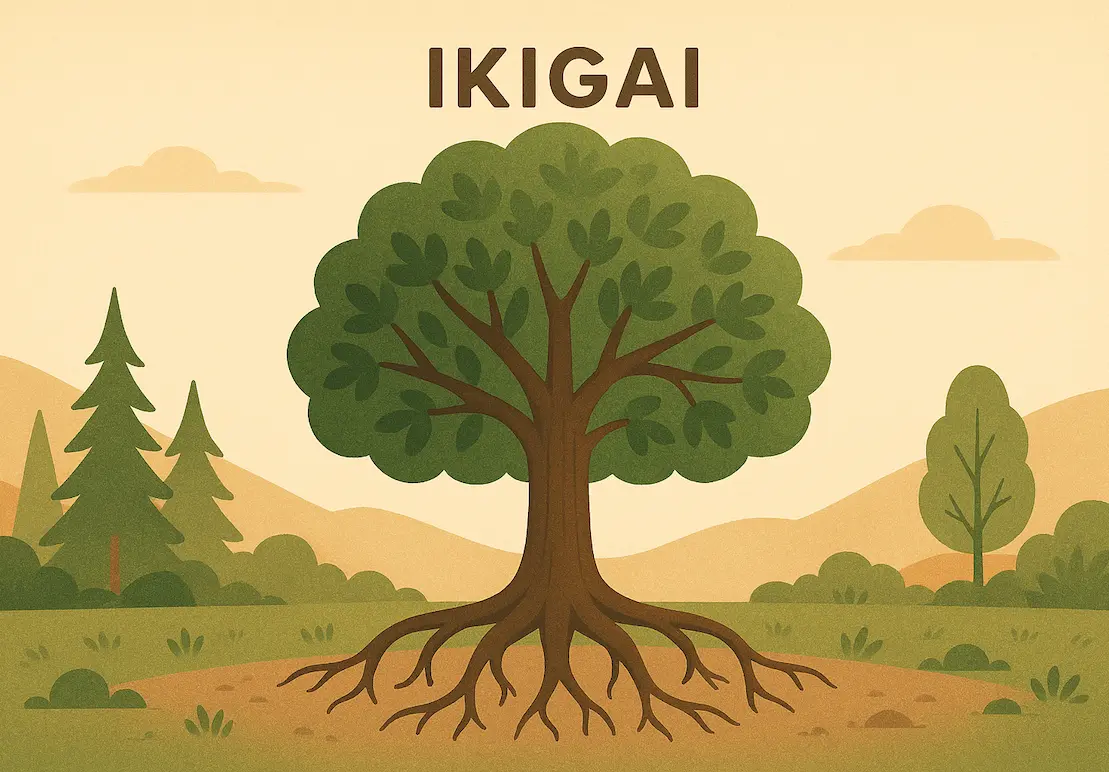
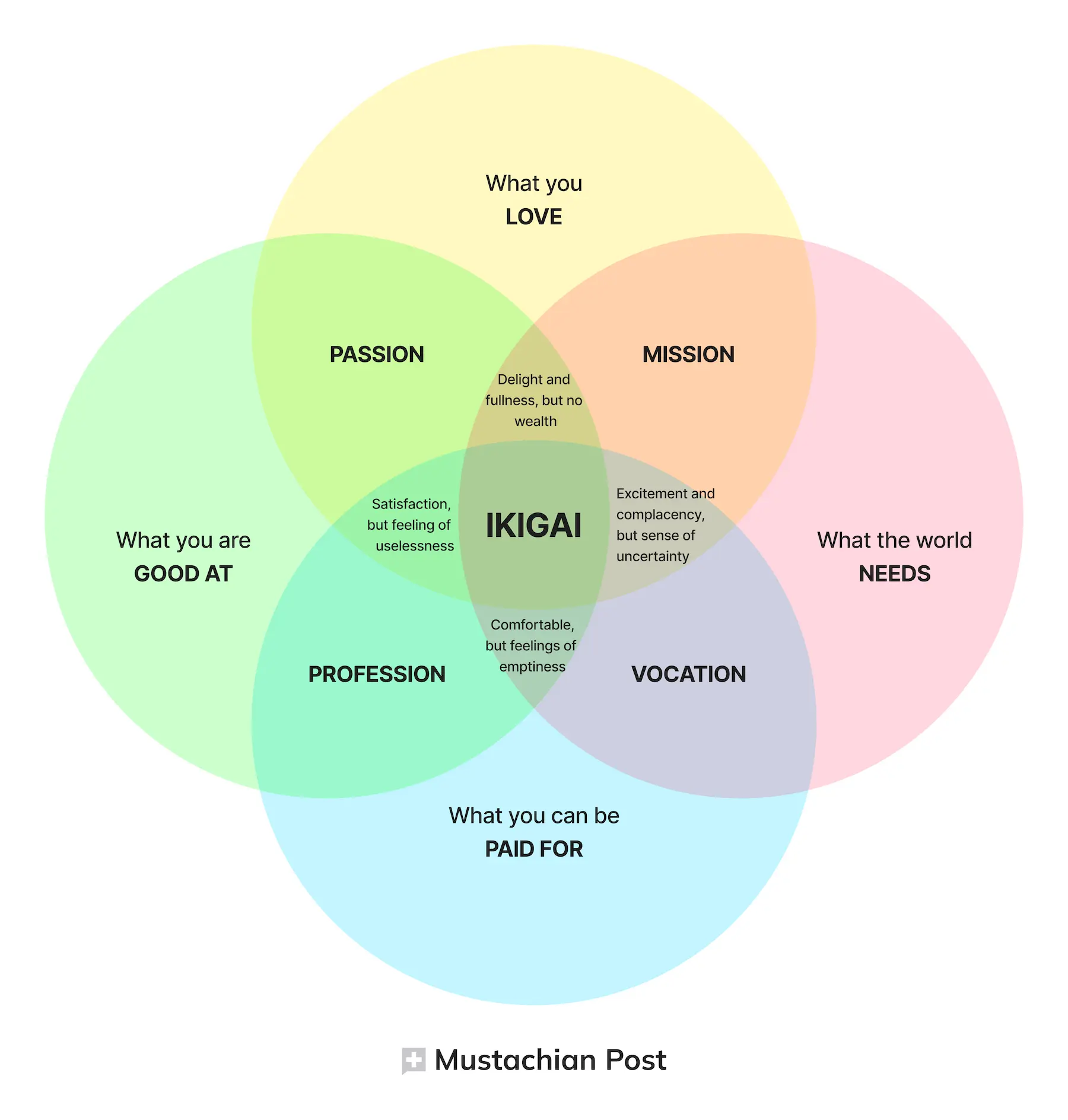

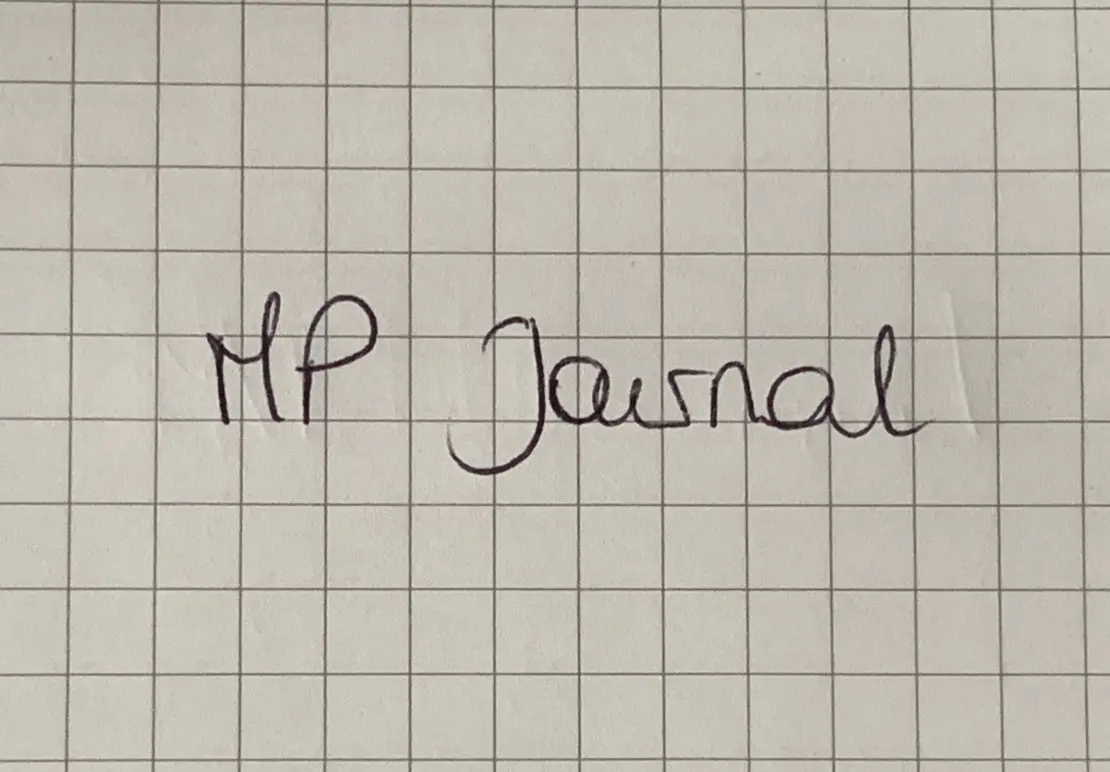

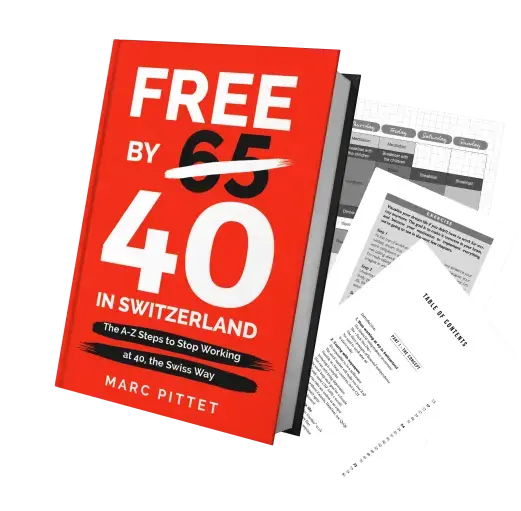
Last updated: June 19, 2025